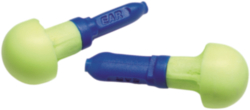hesstool
Stainless
- Joined
- Oct 4, 2007
- Location
- Richland, WA
I was thinking the other day about the many switches I make regarding hearing protection. For the most part I wear corded disposable foam earplugs. However, if my CNC's have a long cycle time and I'm secluded in my office, I use the ear muffs when I have to go back out in the shop to change parts. It's just more convenient than putting the foam plugs in for only a short time.
What hearing protection do you use or prefer? Or are you one of those guys that use the excuse that your hearing is "too far gone" for any protection to do any good?
What hearing protection do you use or prefer? Or are you one of those guys that use the excuse that your hearing is "too far gone" for any protection to do any good?






